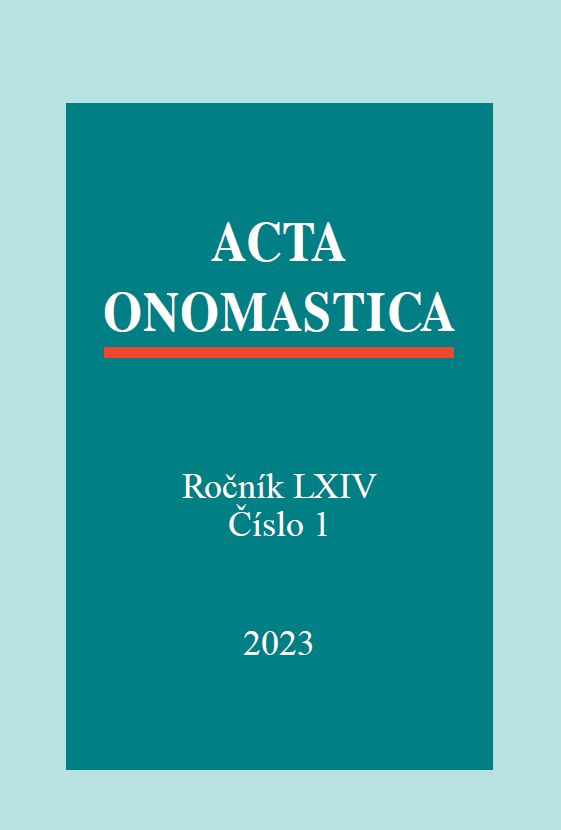Alte Namen, neue Namen und die ethnische Rekonstruktion
Old names, new names and the ethnic reconstruction
Author(s): Rita PóczosSubject(s): Language and Literature Studies, Applied Linguistics, Sociolinguistics
Published by: AV ČR - Akademie věd České republiky - Ústav pro jazyk český
Keywords: toponymic system; etymology; bilingualism; early naming
Summary/Abstract: The examination of 11th century charters, the earliest records of Hungarian literacyrepresents a key task of the Hungarian Historical Linguistics and Onomastics ResearchGroup. Ten sources from the beginning of the century, the charters of Stephen I, havebeen studied systematically only to a lesser extent because the original copies of thecharters did not survive, while some of their data have been used in studies of demographichistory.The first part of the paper summarizes the study of this source group and the difficultiesinvolved in its evaluation: the systematic analysis of close to 50 toponymic dataof charters has shown that only half of the examined data have reliable etymology.As a result, this source type is less suitable for the exploration of the ethnic relationsof the population of the time than what has previously been presumed.The second part of the paper presents those findings of my analysis of a contemporaryHungarian-German bilingual toponym database with a high number of elements thatmay also provide information for the study of toponyms from older eras that havescarce resources or none at all, and for conclusions about demographic history thatmay derive from these.Based on the results of the analysis, it seems that the etymological study of microtoponymsis clearly more suitable for establishing the demographic conditions of a particularera than conclusions drawn from the origin of settlement names as the nameform that is more sensitive to social changes and less conserved by administrativemeans has a more reliable ethnicity-designating value.When examining adapted name forms, we need to keep in mind that in many casesthey become part of the receiving language with only minimal phonological changesthat only modern name registers are able to record; the creators of old documents hadneither the reasons, nor the tools to reflect such changes and variations, thus the integrationof loan names often has no trace in written sources.
Journal: Acta Onomastica
- Issue Year: 64/2023
- Issue No: 1
- Page Range: 139-156
- Page Count: 18
- Language: German

